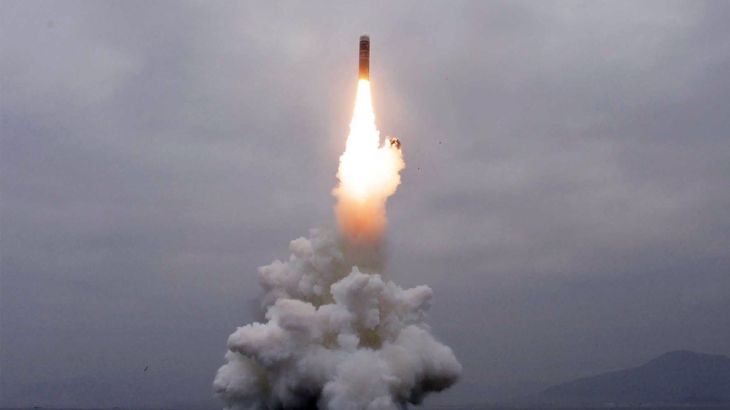
Is nuclear non-proliferation still a realistic goal?
Russia hosts a conference at a time of global unease about atomic ambitions in Iran and North Korea.
Delegates from more than 40 countries are in Russia, as concerns grow about the threat of nuclear war.
Talks for North Korea to give up atomic weapons in return for sanctions relief have stalled. Russia and the United States have abandoned a treaty on limiting nuclear missiles, and, a year after the United States pulled out of the 2015 Iran nuclear deal, Tehran is taking more steps to produce enriched uranium, which could be used for weapons.
Keep reading
list of 4 itemsIran warns it will change nuclear doctrine if ‘existence threatened’
Russia announces nuclear weapon drills after ‘provocative’ Western threats
North Korea conducts test on new ‘super-large warhead’: State media
Russia’s foreign minister opened the conference in Moscow by saying Iran’s latest move does not pose a threat to non-proliferation.
There are an estimated 14,500 nuclear weapons around the world, in the hands of nine countries.
Five have signed on to the United Nations’ non-proliferation treaty – the US, United Kingdom, France, Russia and China.
The others – India, Pakistan, Israel and North Korea – are not restricted by the pact, which is meant to limit the spread of nuclear weapons.
So is there the political will to limit and abolish nuclear weapons?
Presenter: Nastasya Tay
Guests:
Sahil Shah – specialist on non-proliferation and disarmament
Robert Kelley – distinguished fellow at Stockholm International Peace Research Institute and former director at the International Atomic Energy Agency
Rebecca Johnson – director at Acronym Institute for Disarmament Diplomacy